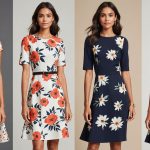Innovative Marketing Strategies for Online Art Workshops
In the digital arena, marketing strategies play a crucial role in the success of online workshops. Art studio promotion can be enhanced by strategically utilizing social media platforms. These platforms allow you to run targeted advertising campaigns to reach a specific audience interested in art, thus maximizing your return on investment. By carefully crafting your advertisements, you can engage potential participants who might not have discovered your workshops otherwise.
A compelling email marketing campaign is another effective strategy. Personalised emails to potential attendees not only highlight the unique aspects of your workshops but also build a lasting connection. Incorporating insights about the participants’ preferences can make your emails more relevant and appealing.
In the same genre : Comprehensive handbook to navigating uk legal regulations for starting your cryptocurrency exchange
Collaborating with local influencers or artists opens up new avenues for broader reach. These partnerships can integrate the influencer’s audience with your art studio, thereby expanding your participant base. Jointly hosting an online art session or featuring an influencer in your workshop can significantly increase visibility.
By innovatively marketing your online art workshops, you establish a robust presence in the art community, drawing in a diverse and engaged audience eager to explore their creative potential.
This might interest you : Unlocking influencer marketing success: a comprehensive blueprint for beauty brands in the uk
Engaging Clients through Interactive Content
Interactive content is a cornerstone of client engagement in art workshops. These methods can enrich the online experience, making sessions both informative and enjoyable. One efficient way to boost engagement is by incorporating live Q&A sessions during workshops. This allows participants to address their questions in real-time, enhancing the learning opportunity. In turn, this immediacy creates a vibrant and responsive environment, often leading to increased satisfaction and participation.
Downloadable resources, such as PDFs or art kits, complement the learning journey considerably. They allow attendees to continue practising offline, reinforcing techniques taught during the workshops. This added value is appreciated by participants seeking comprehensive learning experiences.
Additionally, the use of polls and feedback forms ensures that workshop content remains relevant and adaptable. By gathering participant input, instructors can modify the session flow, aligning it better with attendees’ expectations and preferences. Real-time adaptation serves as a powerful tool in maintaining engagement and ensuring the content meets learner needs.
By utilizing these strategies, art studios can transform online workshops into dynamic and interactive experiences, thereby significantly strengthening client loyalty and satisfaction.
Leveraging Technology for Enhanced Learning Experiences
In the pursuit of advancing online learning for art enthusiasts, incorporating technology tools is pivotal. One of the foremost methods is exploring art workshop platforms that provide a user-friendly interface ensuring ease of use for participants of all skill levels. Such platforms streamline the learning process, allowing for intuitive navigation and interaction with the course content.
Artistic software tools are integral to practical learning, offering features that mimic traditional art techniques in a digital space. These tools can transform regular sessions into immersive learning experiences, enabling students to experiment with digital brushes, textures, and palettes.
Incorporating virtual reality (VR) or augmented reality (AR) in sessions offers a futuristic edge, allowing participants to engage with art in a three-dimensional space. These technologies provide an experiential learning environment, making lessons more engaging and memorable.
Benefits of Embracing Technology in Art Workshops:
- Immediate access to advanced tools and resources for creativity.
- Enhanced engagement and retention of complex artistic concepts.
- Potential for personalised learning pathways suiting individual needs.
By leveraging these technological advancements, art studios can offer enriched learning experiences, appealing to a tech-savvy audience seeking innovation in creative expression.
Case Studies of Successful Online Workshops
Exploring successful workshops through various case studies provides valuable insights into effective strategies for art studios transitioning to an online format. A notable example involves a UK art studio which revolutionised its approach by incorporating immersive digital elements and interactive classes. This strategic shift resulted in a significant increase in participant engagement and satisfaction, showcasing the impact of innovative practices.
Prominent artists have also taken their workshops online with remarkable success. By leveraging their unique methods and personal brand, these artists have attracted a global audience while maintaining personalised touchpoints. Their key takeaways include the importance of maintaining authenticity and enhancing the participant experience through storytelling and vivid demonstrations.
Exploring participant growth metrics can further highlight the nuances of these successful models. Studies show a marked rise in engagement metrics, such as increased time spent in workshops and more interactions per session. Successful studios often use feedback loops to continually evolve their programmes, responding to attendee preferences and emerging trends.
By understanding these strategies and outcomes, art studios can better craft engaging online workshops that resonate with diverse audiences, ensuring both growth and sustained interest.
Creating a Unique Selling Proposition (USP)
To stand out in the competitive world of art workshops, crafting a unique selling proposition (USP) is essential. A well-defined USP helps differentiate your workshops and solidifies your art studio’s identity. Start by identifying distinct themes or niches that set your sessions apart. Whether exploring unconventional techniques or blending art with other disciplines, these aspects can attract a specific audience keen on niche interests.
Highlighting exclusive experiences is another crucial strategy. Secure guest instructors renowned in the art community to lead special sessions. Their presence not only elevates the workshop experience but also draws participants eager to learn from esteemed professionals. This exclusivity is a significant draw, enhancing your programme’s appeal.
Communicate the value of your workshops beyond just technical skills. Focus on the transformative experiences and the personal growth participants can achieve. Providing insights into how your sessions foster creativity and artistic expression can resonate with potential attendees looking for more than just skill acquisition.
By meticulously crafting your USP, you ensure your art workshops have a compelling and distinct identity that attracts a diverse array of participants, setting the stage for sustained success.
Building a Community Around Your Art Studio
In the realm of art studio success, fostering a vibrant community is pivotal for long-term client loyalty and engagement. Establishing a dedicated online space for attendees can significantly boost this sense of community. Platforms like private Facebook groups or exclusive forums allow participants to engage, share their creations, and discuss workshop experiences. These spaces serve as virtual extensions of your studio, and, crucially, offer continued interaction beyond structured sessions.
Networking opportunities are another potent tool for deepening community ties. By facilitating group projects or initiating collaborative assignments, participants can connect on shared interests and learn from peers. Scheduling regular online meet-ups for casual conversation or topic-focused discussions can also reinforce these bonds.
To solidify a sense of belonging, consistent follow-up engagement is vital. Personalised messages or updates on participants’ progress help maintain interest and show appreciation for their involvement. Continued support, such as offering additional resources or answering follow-up questions, demonstrates that your art studio invests in each individual’s artistic journey. Ultimately, creating an engaging community around your art studio not only cultivates artist engagement but also strengthens loyalty, ensuring a thriving creative ecosystem.











